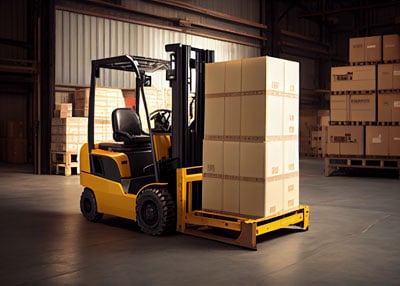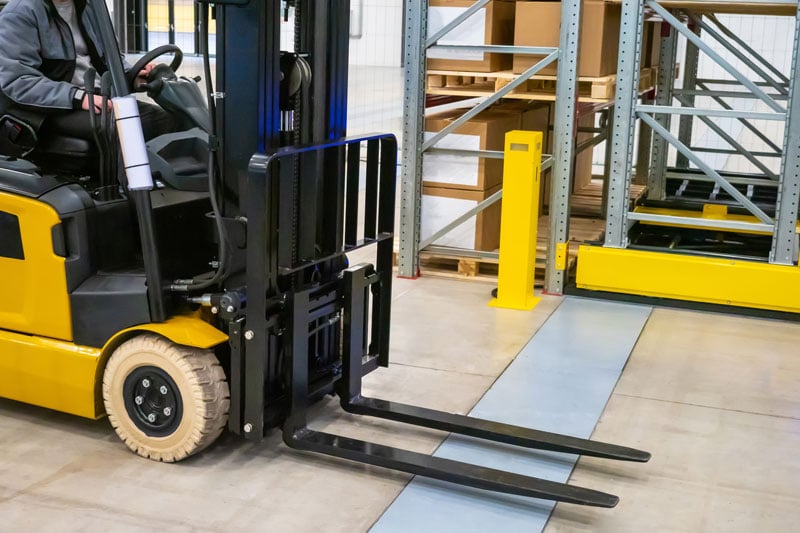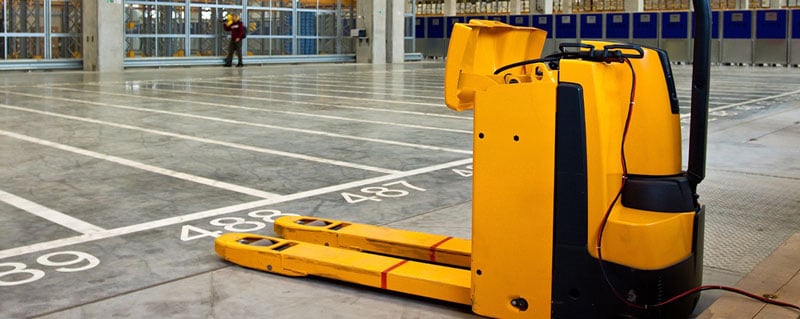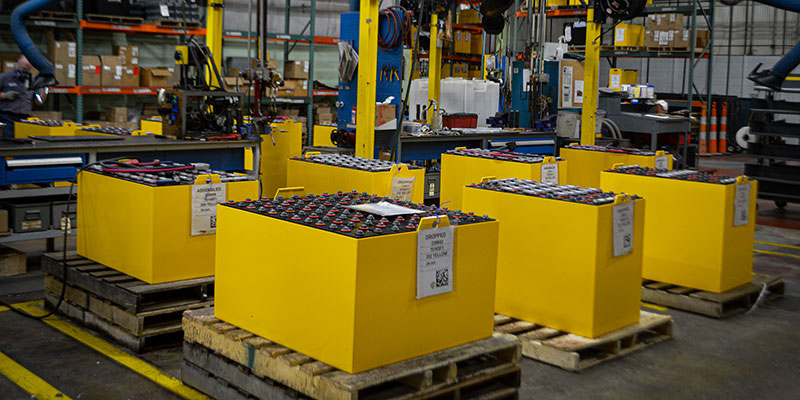When it comes to material handling, there are three types of motive power to choose from: electric, propane or LP, and diesel. Assuming capacities of each are equal, other factors for determining which forklift is right include run-time considerations ‒ including multi-shift operations ‒ application and use environment. For the purposes of our comparison, we’ll assume indoor use, which in most cases will rule out diesel forklifts due to the need and expense of installing costly emission control accessories and enhanced facility ventilation.
So let’s take a look at the pros and cons of our two remaining power sources: electric and propane.
Advantage ‒ Electric:
1. Lower Total Cost of Ownership
Although the initial investment of an electric forklift is higher than an equal-capacity propane model, the cost over time is significantly less, primarily due to the lower cost of the electricity used to charge the battery compared to the cost of propane as well as maintenance expenses. Of note, as it is a fossil fuel processing byproduct, propane can sometimes be subject to rapid and unexpected price fluctuations.
2. Safer for Workers and Work Environment
Unlike propane forklifts, their electric counterparts do not generate tailpipe emissions ‒ or even have a tailpipe, for that matter. Electric forklifts also emit substantially less noise, and due to their low center of gravity, they are more stable. Plus, they offer a better turning radius and stability as well as enhanced rearward visibility since driver sightlines are not blocked by a propane tank.
Further, with electric, there is no need for indoor or outdoor tank storage nor concerns over fuel leakage or injury caused by lifting or replacing propane cylinders. Overall, electric forklifts are suitable for nearly any indoor application while propane trucks face limitations in certain markets, specifically those with products intended for human consumption.
3. Easy and Inexpensive Maintenance
Propane forklifts require fluid changes, much like automobiles, meaning consumables must be bought and safely disposed of upon changing over the life or lease term of the lift. Conversely, as electric forklifts have no radiator, transmission or engine, maintenance costs are greatly reduced, basically consisting of cheap and readily available distilled water.
Advantage ‒ Propane:
1. Lower Initial Investment
Compared to electric forklifts, the upfront expense of propane models is less. Over time, this advantage swings in favor of electric lifts as described above.
2. Readiness
Propane forklifts perform better in constant-duty and round-the-clock applications, with minimal downtime due to relative quickness in changing a spent fuel cylinder vs. recharging the battery of an electric forklift.
3. Facility Considerations Due to Charging
Facilities using electric forklifts must ensure adequate ventilation and charging areas as well as proper voltage requirements. Also, safety personal protective equipment such as goggles and gloves as well as eyewash stations must be made available.
Still undecided? Contact us to learn more today.

